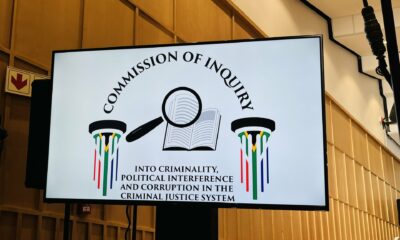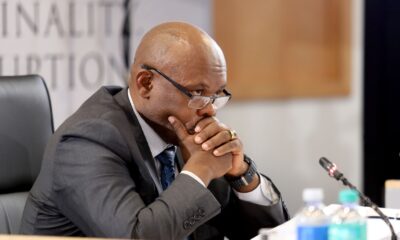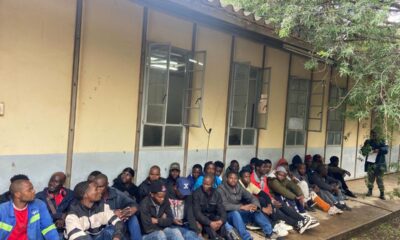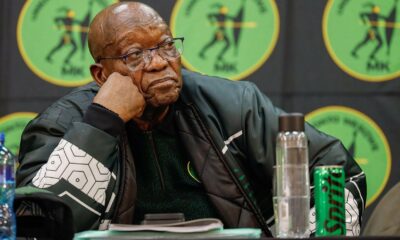News
Why The MK Party Says Senzo Mchunu’s Special Leave Doesn’t Add Up
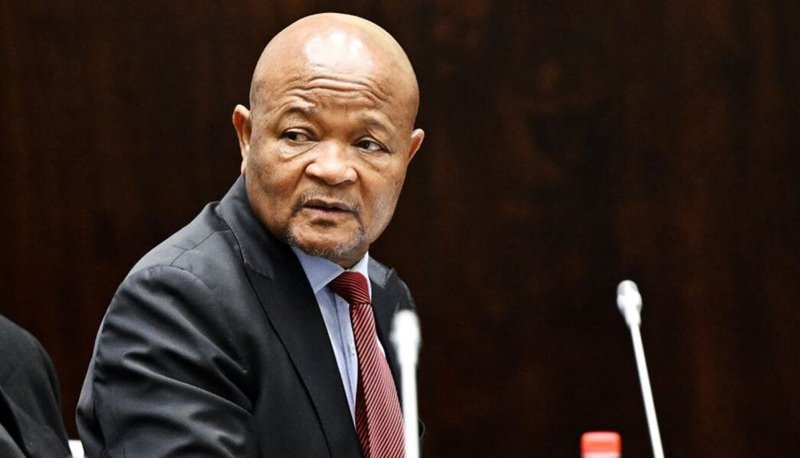
The political drama around South Africa’s policing crisis returned to the Pretoria High Court this week, as the MK Party pushed back once again against President Cyril Ramaphosa’s decision to place Police Minister Senzo Mchunu on special leave. What unfolded in court was a sharp legal argument, layered with political history, old wounds and fresh tensions.
A Legal Battle With Deep Political Shadows
The courtroom was packed when Advocate Dali Mpofu, representing the MK Party and former president Jacob Zuma, argued that there is no logical connection between Mchunu’s suspension and the work of the Madlanga Commission of Inquiry.
At the heart of the dispute is Ramaphosa’s move to temporarily sideline Mchunu and appoint Firoz Cachalia as acting police minister. The president’s decision followed explosive claims by KwaZulu-Natal Police Commissioner Nhlanhla Mkhwanazi, who publicly accused Mchunu of meddling in police operations.
For the third time this year, the MK Party is back in court, continuing its fight after earlier attempts were dismissed by both the Constitutional Court and the High Court on procedural grounds.
Mpofu’s Argument: The Commission Can’t Be The Justification
Mpofu insisted that the president’s justification simply doesn’t hold water. His key point was that a commission’s findings have never guaranteed political consequences. He reminded the court that several politicians implicated in the Zondo Commission were later appointed to posts in Ramaphosa’s own Cabinet.
According to Mpofu, the Madlanga Commission cannot be used as a rational basis for suspending Mchunu because its findings won’t automatically dictate what the president does next.
And, as he put it plainly, Ramaphosa doesn’t even need a reason to fire a minister, given the president’s exclusive constitutional authority over Cabinet appointments.
A Country Watching A Police Crisis Unfold
South Africans on social media are divided. Some argue that removing Mchunu, even temporarily, is necessary to protect the integrity of policing at a time when public trust is at historic lows. Others see the legal battle as another round in the long-running political feud between Ramaphosa loyalists and those aligned with Zuma and the MK Party.
On X (formerly Twitter), users debated everything from the timing of Mkhwanazi’s allegations to whether Ramaphosa acted decisively enough. One user posted, “This feels like political chess disguised as accountability.” Another wrote, “At this stage, anything that cleans up SAPS is welcome.”
Why This Matters For South Africa’s Leadership
For ordinary South Africans, the court case goes beyond political rivalry. The country is grappling with major safety concerns and a police service under intense scrutiny for corruption, internal battles and leadership instability.
The question at the centre of this dispute isn’t only about whether Mchunu should have been placed on special leave. It’s about how the state responds when senior officials are accused of wrongdoing, and whether the processes used to manage these crises inspire confidence or deepen public skepticism.
As the Madlanga Commission continues and the court prepares for its next steps, the battle over Mchunu’s fate is far from over. For now, it’s yet another chapter in South Africa’s increasingly complex policing saga one that blends law, politics and public trust in a way few issues can.
{Source:EWN}
Follow Joburg ETC on Facebook, Twitter , TikTok and Instagram
For more News in Johannesburg, visit joburgetc.com





